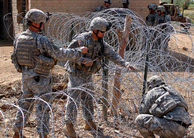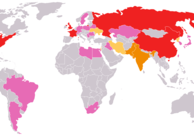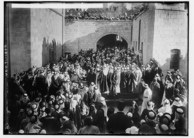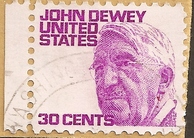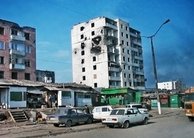|
Political Science
Page 25/33 | Showing results 361 - 375 of 493
2011, Vol. 4 No. 2
Recently, earthquakes in Haiti, Chile and New Zealand, mudslides in Brazil, a catastrophic oil spill in the Gulf of Mexico, the fallout from the fiscal crisis in Greece, and refugee flows out of Libya have highlighted the continued relevance of... Read Article »
2011, Vol. 4 No. 2
Richard Burt is the former U.S. ambassador to Germany, and recently played a critical leadership role in the ratification of the Strategic Arms Reduction Treaty (START). Burt had previously served as a correspondent for the New York Times, and is... Read Article »
2011, Vol. 4 No. 2
When a country undergoes the process of decentralization, it requires a transfer of authority, responsibility, and/ or resources from the national to lower levels of government, with the purpose of creating good governance. If successful, decentralization... Read Article »
2011, Vol. 3 No. 04
A large portion of Robert Nozick’s Anarchy, The State and Utopia is dedicated to refuting the theories of John Rawls. Specifically, Nozick takes issue with Rawls’ conception of distributive justice as it pertains to economic inequalities... Read Article »
2011, Vol. 3 No. 04
The Islamic Republic of Iran today sits at the crossroads of Asia between the Middle East and Central Asia. This inherently places it in very close proximity to over half of the world's known energy reserves both in the form of petroleum and natural... Read Article »
2011, Vol. 3 No. 03
As many cultural studies theorists have noted, identity is problematic (Hall, 1989; Ang, 2001; Brah, 1996). It is ambiguous because it is in a constant state of negotiation and interpretation: ever changing, always contested, sometimes contradictory... Read Article »
2011, Vol. 3 No. 03
In two postcolonial novels, The God Of Small Things by Arundhati Roy and Secrets by Nuruddin Farah, both authors use the politics of families to paint a vivid picture of the social, cultural and political conditions of their nations. Roy and Farah... Read Article »
2011, Vol. 3 No. 03
It is widely recognized that state security is no longer contingent upon a balance of power or the threat of conquering states, but global stability is now instead jeopardized by weak or fragile states. Fragile states represent chaos, disorder,... Read Article »
2011, Vol. 3 No. 03
With the Great Arab Revolt in 1915, the Hashemite family was catapulted to the forefront of Middle Eastern politics and became the literal symbols of Arab unity. Even after their failure to create a single Arab state, and the defeat of Prince Faisal... Read Article »
2011, Vol. 3 No. 03
Controversy, in its etymology, expresses a significant change to something deeply rooted. Hence, differing degrees of controversy in response to immigration can be explained in terms of two main factors: 1) countries’ historical experiences... Read Article »
2011, Vol. 3 No. 03
John Dewey was an ingenious and significant figure whose criticisms spanned a wide range of disciplines, including philosophy, education, politics, aesthetics, and ethics. The late American philosopher Richard Rorty, in Philosophy and the Mirror... Read Article »
2011, Vol. 3 No. 03
The 2010 Colorado Senate race was one of the most contentious and hard-fought races in the country during the 2010 election cycle. Like many other races, it pitted an establishment Democrat against a tea-party backed Republican. The outcome of the... Read Article »
2011, Vol. 3 No. 03
Violence undermines an inclusive national identity that considers those of other races, classes and creeds as compatriots, for as Mirowsky and Ross (1983: 238) note, “When other people in one’s life have become a hostile army, social... Read Article »
2011, Vol. 3 No. 02
The Republic of Chechnya in Russia’s North Caucasus region has drawn significant attention for being host to remarkable instability, thriving terrorism, and a staggering display of human rights violations over the past two decades, including... Read Article »
2011, Vol. 3 No. 02
Following 9/11 and the beginning of the global War on Terror, it became obvious that the United States needed an ally in East Africa. Kenya, a country that has remained relatively stable while surrounded by regional insecurities, was chosen by the... Read Article »

Expedited Article Review
Submit an article and get a decision fast.
If you need a fast decision, INQUIRIES Journal offers expedited processing of your submission for a small fee. Depending on the expedited review option you choose, you can receive a decision in as few as 5-days.
In addition to a shorter review period, the fee supports the journal's continued operation and open-access publishing model. Standard submissions are always free. Submit Now » - Submit an Article to Inquiries Journal -
|

